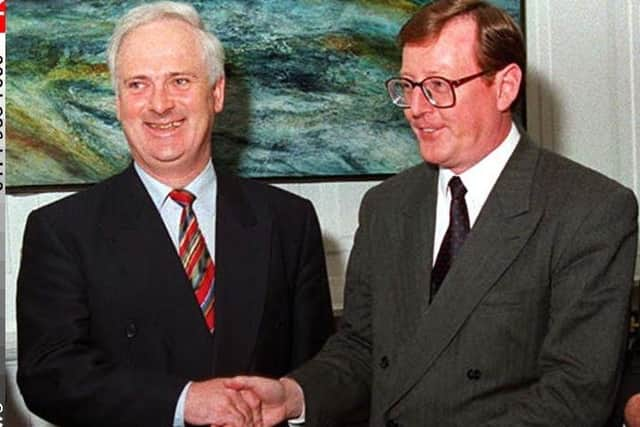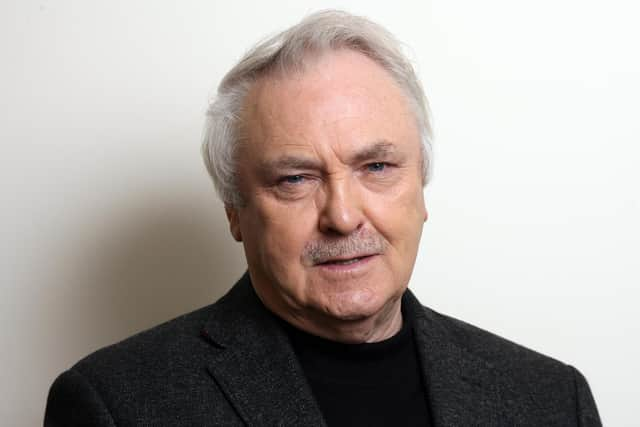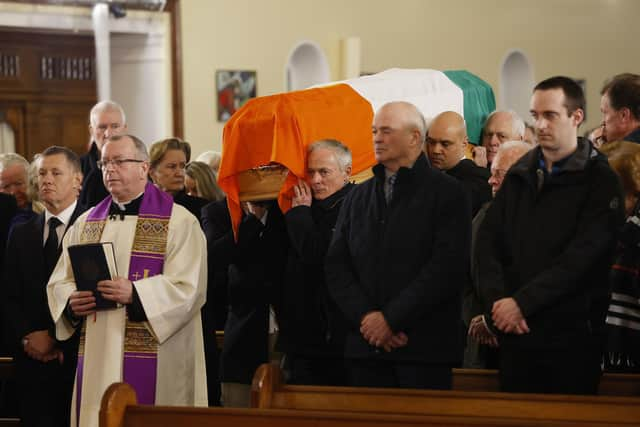Eoghan Harris: John Bruton – the Taoiseach who understood unionists from Northern Ireland


As his advisor during his period in government I know that what mattered to him most was reconciliation between the Republic and Ulster Protestants, because it was the only issue that could lead to ethnic conflict on the island.
This did not go down well during his tenure as Taoiseach when most felt peace processing merely meant sucking up to Gerry Adams.
Advertisement
Hide AdAdvertisement
Hide AdEven after his death, RTE told us “his perceived pro-unionist position was questioned” with not a hint that it would ultimately prove crucial to making peace.


One interviewer on Virgin Media even asked the panel, ‘did he get the nationalist position?’
Yes he did. But he rightly believed that since we in the Republic were already on the nationalist side we had to go the extra mile to reach out to unionists.
Every political move he made was bent to that end.
For example, although he was the first Taoiseach to invite a member of the royal family, Prince Charles, to visit Ireland in 1995, he didn’t do it just to schmooze with British royalty.
Advertisement
Hide AdAdvertisement
Hide Ad

As he told RTE the following day, he wanted to make it “easier for the different traditions in Northern Ireland to accept one another. As we have accepted one another here”.
Looking back at the life of a man I both loved and respected, I want to record three singular traits that made John Bruton’s term as Taoisigh a watershed in Irish politics.
First, his iron determination not to give the deeds of the Irish Republic to the Provisional IRA, whom he always regarded as a specifically Irish species of fascism.
Here he was unique among other peace processing prime ministers (Reynolds, Bruton and Ahern) in experiencing the degrading effect of political violence at close quarters
Advertisement
Hide AdAdvertisement
Hide AdIn 1974, the Provisional IRA murdered his close friend, Senator Billy Fox, in a squalid sectarian attack.
After that dark day John despised any apologias about "armed struggle" and spoke from the heart: “That such a man would be murdered still makes me angry. If I am still angry, I can only imagine the feelings of those much closer to him than I.”
A devout Roman Catholic, his repudiation of republican terrorism was as much on moral as political grounds.
He accused the Provisional IRA of betraying the Irish people by murdering unionists, and gave them constant reality checks: “the British presence in Northern Ireland is not the British army or state but a million unionists”.
Advertisement
Hide AdAdvertisement
Hide AdThe second singular thing about John Bruton was his firm belief that it was no part of an Irish prime minister's job to confront, let alone destroy Ulster Unionists.
At one with the poet John Hewitt, he believed that unionists "have rights drawn from the soil and sky”.
He signalled the sincerity of that belief the day he took over Fine Gael in 1990, when his first action was to call for a referendum on the Republic’s constitutional claim to Northern Ireland because he recognised that unionist majority consent would be needed for any settlement.
Thus he laid the first political foundation stone in the eventual removal of the Republic’s Articles 2&3 which opened the way to the Good Friday Agreement.
Advertisement
Hide AdAdvertisement
Hide AdFive years later, as Taoiseach, he laid the second stone of the peace process via the Framework Document with John Major in 1995, which effectively revoked the humiliating Anglo-Irish Agreement, and accepted on behalf of the Irish government that “the current constitutional status of Northern Ireland as part of the United Kingdom will not change".
Finally, he continually educated the Republic on the realities of Irish history.
Albert Reynolds called him John Unionist, but John Reality Check would be more accurate. He continually forced his colleagues to face the facts of Irish history in matters both small and great.
When An Post presented him as Taoiseach with a new stamp design to commemorate the Irish soldier in foreign military service, noting it included Austria, France, Spain, USA but excluded the UK (which most Irish soldiers had served), he told An Post the stamp would only be approved when this was rectified, which it was.
Advertisement
Hide AdAdvertisement
Hide AdBut the greatest reality check he gave the Republic was in repudiating the 1916 Rising, not least because of its indifference to unionist views.
In his 2016 lecture (which was reproduced in full in the News Letter click here) he pointed out the only oblique reference to the Ulster problem in the Easter Proclamation was a promise to cherish all the “children” of the nation “equally” and asked us to reflect on the assumption that Ulster Unionists were “children” who in that era were expected to be obedient, “whatever they might think themselves”.
John Bruton never stopped reading and reflecting on Irish and European history.
His long view made him confident there was nothing inevitable about Sinn Fein’s project for a united Ireland.
Advertisement
Hide AdAdvertisement
Hide AdSpeaking in Dáil Éireann, in the spring of 1998, on the ratification of the Belfast Agreement, when Soviet communism was collapsing, he looked back into the past, at the events unfolding in Eastern Europe, and rejected any notion of any predestination in history.
"History is what we make for ourselves", he told the Dail, "There is no inevitable march of history in any direction.
"The ideology that believed in the inevitability of historical processes died a discredited death when the Berlin Wall crumbled in 1989. A united Ireland is not demographically inevitable. The continuance of the Union is not inevitable. Peace is not inevitable, nor is conflict. Nothing is inevitable in history."
Rest in peace, John Bruton, loyal servant of all the people on this island.
Advertisement
Hide AdAdvertisement
Hide Ad• Eoghan Harris is a Dublin-based commentator and former speech writer to David Trimble